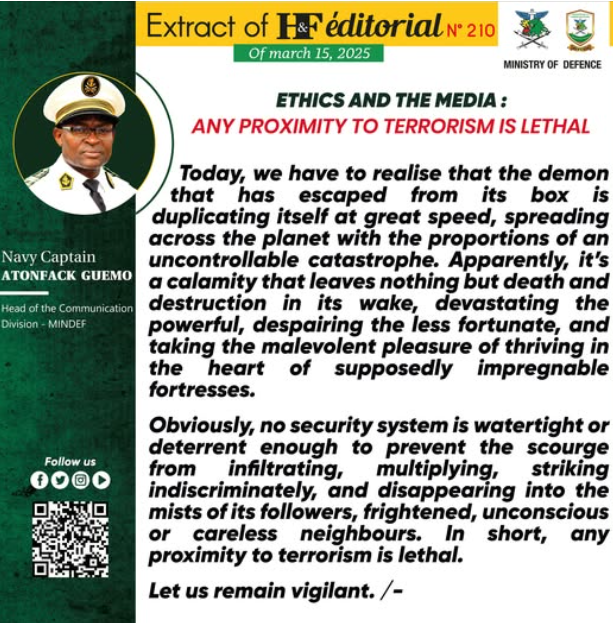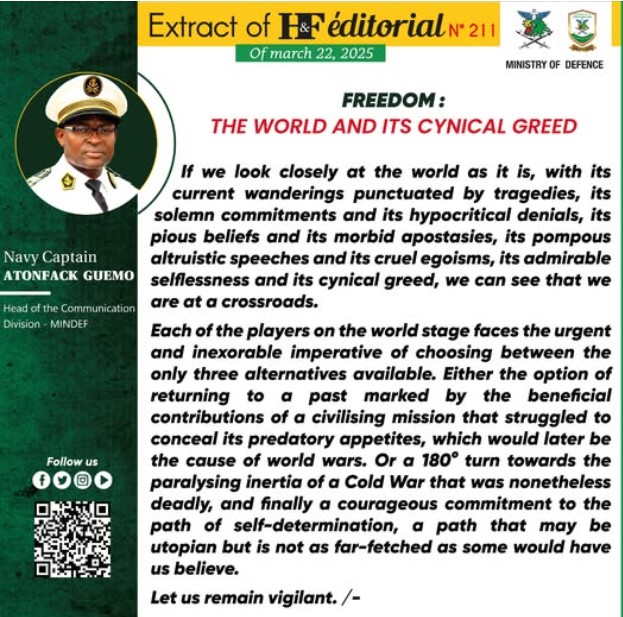When we talk about terrorism, it is fair and wise to admit that before it materialises in these acts of unspeakable cruelty, this terrible thing germinates and flourishes in our minds. From there it spreads into our words, our speeches and our daily actions. In the age of Information and Communication Technologies, we find and spread the idea of terrorism on our iPads, smartphones, computers, tablets, televisions, radios and even in our reading material.
Yet for a long time some people – and they were not the first to do so – portrayed terrorism as a geographically localised epiphenomenon, destined to occur only in areas where intellectual backwardness and material deprivation were rife. Others thought that it could be avoided by collusion. They thought that if they instigated it, encouraged it and gave it titles of nobility, terrorism would show enough gratitude and discernment to spare them. How wrong they were!
Today, we have to realise that the demon that has escaped from its box is duplicating itself at great speed, spreading across the planet with the proportions of an uncontrollable catastrophe. Apparently, it’s a calamity that leaves nothing but death and destruction in its wake, devastating the powerful, despairing the less fortunate, and taking the malevolent pleasure of thriving in the heart of supposedly impregnable fortresses.
Obviously, no security system is watertight or deterrent enough to prevent the scourge from infiltrating, multiplying, striking indiscriminately, and disappearing into the mists of its followers, frightened, unconscious or careless neighbours. In short, any proximity to terrorism is lethal.
So what can we say about the media hype orchestrated by the information relays that act as propagandists for terrorism? The process consists of giving the greatest possible prominence to the exploits of the recurrent trend, since it is now agreed that the plight of our people and the murder of our soldiers allow one party to put pressure on a country, another to gain publicity and the media to increase its sales.
Perhaps against their will, the fact remains that, in their desire to attract an audience, many of our local media outlets, if they do not overuse the conditional tense by repeating to the point of disgust foreign perspectives, go so far as to instigate dizzying cognitive intrusions, the harmful effects of which are felt in the disqualification of common sense, the demoralisation of the people, the dumbing down of intelligence, the weakening of cohesion and, more seriously, the disintegration of institutions.
The universality and inviolability of the ethics of information therefore demand that the endless blasphemous speeches against our security apparatuses, accused of incompetence, be examined or re-examined in the light of these tragedies, which affect us all without exception, and whose relationship would always benefit from being surrounded by fidelity, equity and sobriety.
In this way, the Fourth Estate, which despite the vicissitudes of life continues to render immeasurable services to the nation, will contribute more effectively to the return of peace throughout Cameroon. A matter of vocation!!!
Let us remain vigilant. /-




